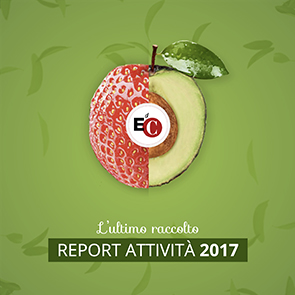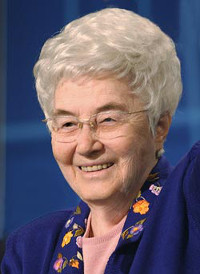The preparatory meeting for the Prophetic Economy international event brought together young people aged eleven to fifteen: we had promised ourselves to let their thoughts emerge. As a result, an astonishing awareness was demonstrated by them.
by Federica Nalli
published in propheticeconomy.org
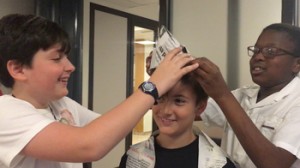 Someone once told me that the important things in life are done before the age of fifteen. At the time I thought he was a fool, but I have changed my mind, thanks to "our" young ones. Often it is easier for us adults to think that they are "just" kids who still have to grow up and find their way. However, we do not realize that it is they themselves who ask us, with their attitudes and the words they manage to say, to make them responsible, to put them in a position to make their voices heard and to do something to assert their vision of the world. They don’t want us to wait for them to become adults, because "becoming adults" is often just a way of letting their passions, ideas and great questions that we adults are unable to answer die away, because we have given up; and of letting their vocation and enthusiasm go out to dedicate their lives "to more serious things", to think about how to "taking home the daily bread" instead of dreaming about how to save the world.
Someone once told me that the important things in life are done before the age of fifteen. At the time I thought he was a fool, but I have changed my mind, thanks to "our" young ones. Often it is easier for us adults to think that they are "just" kids who still have to grow up and find their way. However, we do not realize that it is they themselves who ask us, with their attitudes and the words they manage to say, to make them responsible, to put them in a position to make their voices heard and to do something to assert their vision of the world. They don’t want us to wait for them to become adults, because "becoming adults" is often just a way of letting their passions, ideas and great questions that we adults are unable to answer die away, because we have given up; and of letting their vocation and enthusiasm go out to dedicate their lives "to more serious things", to think about how to "taking home the daily bread" instead of dreaming about how to save the world.
“Our" kids are "ours" not only because they come from our movements, but because now that we have involved them in the Prophetic Economy 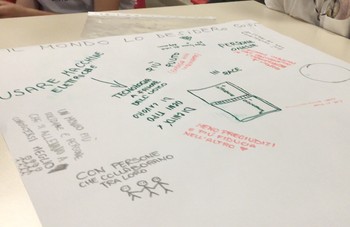 process, the responsibility for their future lies with all of us. Because one thing I've learned is that if they feel teased by us adults, young people are very good at getting their own back on us. With one small detail: the cost of that disappointment will fall on their future, a future in which there will be no room for altruism and ideals.
process, the responsibility for their future lies with all of us. Because one thing I've learned is that if they feel teased by us adults, young people are very good at getting their own back on us. With one small detail: the cost of that disappointment will fall on their future, a future in which there will be no room for altruism and ideals.
The preparatory meeting took place in June and brought together young people aged eleven to fifteen, all of whom are members of youth organisations such as Teens for Unity and the Scouts, or simply live with their parents in the communities we belong to. While preparing for the day we had promised ourselves to let their thoughts emerge, to stimulate them, but leave them free to express themselves in their own way and according to their understanding of the world. We tried to give them "tastes" of the major social, environmental and economic problems, so that there would also be an educational part; but most of the time was devoted to bringing out their questions and proposals. There were three themes for three working groups: what you don't like about the world, what the world you want is like, suggestions for a better world.
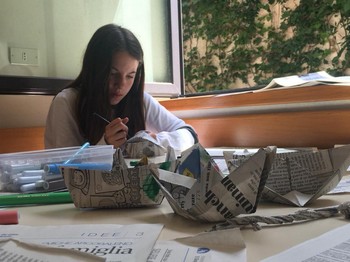 The outcome was an astonishing kind of awareness, greater than any adult would have demonstrated. The kids talked about wars, corruption and drugs as interconnected problems; about urbanization and overpopulation, consumerism, education and inequality; they were able to point out a series of behaviours that are necessary to reduce waste and energy consumption and they knew about the existence of things like time-based currency; they understood by themselves the importance of honesty and trust among people: which is the concept of social capital in economics. They also suggested fundraising strategies to us, and then proposed to carry them out personally. But the most intense moment was that of the ping-pong questions and
The outcome was an astonishing kind of awareness, greater than any adult would have demonstrated. The kids talked about wars, corruption and drugs as interconnected problems; about urbanization and overpopulation, consumerism, education and inequality; they were able to point out a series of behaviours that are necessary to reduce waste and energy consumption and they knew about the existence of things like time-based currency; they understood by themselves the importance of honesty and trust among people: which is the concept of social capital in economics. They also suggested fundraising strategies to us, and then proposed to carry them out personally. But the most intense moment was that of the ping-pong questions and 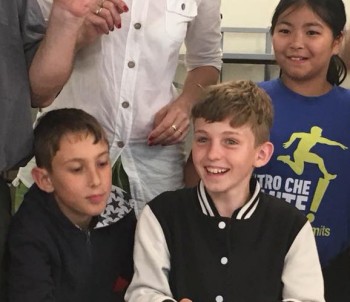 answers among young people and adults. The questions of the young people can be disconcerting in their simplicity; precisely because they are veiled in naivety, and able to identify the nerve centre of every problem, as we would never be, lost as we are in the complexity of reality. (Watch the live broadcast on Facebook)
answers among young people and adults. The questions of the young people can be disconcerting in their simplicity; precisely because they are veiled in naivety, and able to identify the nerve centre of every problem, as we would never be, lost as we are in the complexity of reality. (Watch the live broadcast on Facebook)
“Is it necessary to continue building new buildings?” No! Of course, to justify this answer we need a lot of explanations, but to such a clear question we can only answer in a clear way, in a way that puts us all with our backs against the wall. “Why have there always been jobs in the north and not in the south? What do politicians do in the face of these problems?” And then my favourite: “According to you adults, will we succeed in bringing this vision of ours into politics and into the economy?”
I would like to think that we will succeed; that we adults will help young people to cultivate and promote it; and that young people - with their imagination and intelligence - will be able to find new ways to establish it. You are all kindly invited to Prophetic Economy to keep that promise.
Watch the video
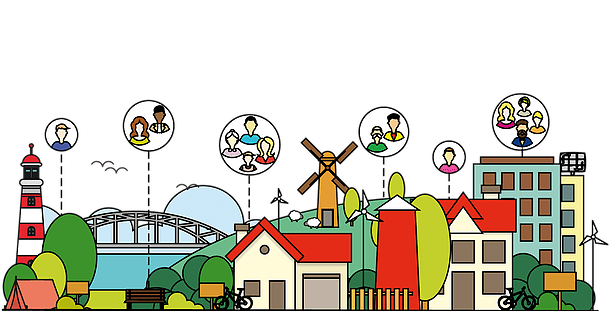

 Someone once told me that the important things in life are done before the age of fifteen. At the time I thought he was a fool, but I have changed my mind, thanks to "our" young ones. Often it is easier for us adults to think that they are "just" kids who still have to grow up and find their way. However, we do not realize that it is they themselves who ask us, with their attitudes and the words they manage to say, to make them responsible, to put them in a position to make their voices heard and to do something to assert their vision of the world. They don’t want us to wait for them to become adults, because "becoming adults" is often just a way of letting their passions, ideas and great questions that we adults are unable to answer die away, because we have given up; and of letting their vocation and enthusiasm go out to dedicate their lives "to more serious things", to think about how to "taking home the daily bread" instead of dreaming about how to save the world.
Someone once told me that the important things in life are done before the age of fifteen. At the time I thought he was a fool, but I have changed my mind, thanks to "our" young ones. Often it is easier for us adults to think that they are "just" kids who still have to grow up and find their way. However, we do not realize that it is they themselves who ask us, with their attitudes and the words they manage to say, to make them responsible, to put them in a position to make their voices heard and to do something to assert their vision of the world. They don’t want us to wait for them to become adults, because "becoming adults" is often just a way of letting their passions, ideas and great questions that we adults are unable to answer die away, because we have given up; and of letting their vocation and enthusiasm go out to dedicate their lives "to more serious things", to think about how to "taking home the daily bread" instead of dreaming about how to save the world.
 The outcome was an astonishing kind of awareness, greater than any adult would have demonstrated. The kids talked about wars, corruption and drugs as interconnected problems; about urbanization and overpopulation, consumerism, education and inequality; they were able to point out a series of behaviours that are necessary to reduce waste and energy consumption and they knew about the existence of things like time-based currency; they understood by themselves the importance of honesty and trust among people: which is the concept of social capital in economics. They also suggested fundraising strategies to us, and then proposed to carry them out personally. But the most intense moment was that of the ping-pong questions and
The outcome was an astonishing kind of awareness, greater than any adult would have demonstrated. The kids talked about wars, corruption and drugs as interconnected problems; about urbanization and overpopulation, consumerism, education and inequality; they were able to point out a series of behaviours that are necessary to reduce waste and energy consumption and they knew about the existence of things like time-based currency; they understood by themselves the importance of honesty and trust among people: which is the concept of social capital in economics. They also suggested fundraising strategies to us, and then proposed to carry them out personally. But the most intense moment was that of the ping-pong questions and  answers among young people and adults. The questions of the young people can be disconcerting in their simplicity; precisely because they are veiled in naivety, and able to identify the nerve centre of every problem, as we would never be, lost as we are in the complexity of reality. (
answers among young people and adults. The questions of the young people can be disconcerting in their simplicity; precisely because they are veiled in naivety, and able to identify the nerve centre of every problem, as we would never be, lost as we are in the complexity of reality. (






